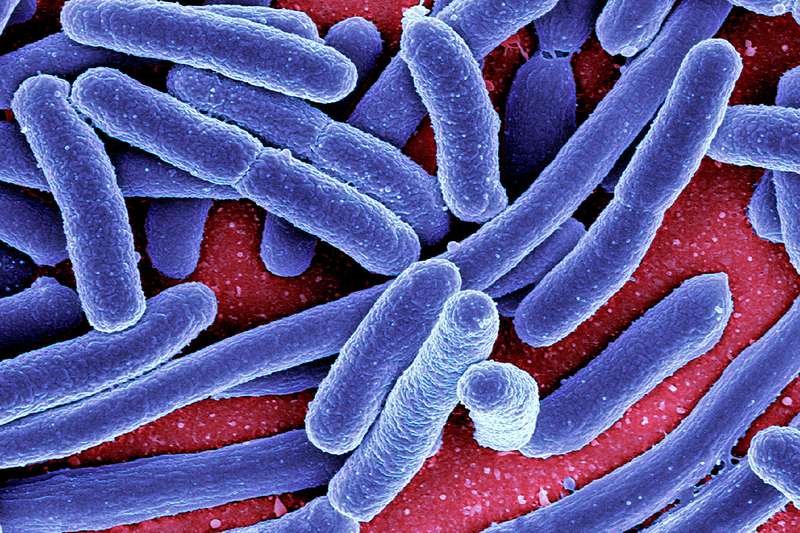
NIAID/CDC/SCIENCE PHOTO LIBRARY
Gut bacteria could be to blame for bowel cancer. People with the condition often have higher levels of certain strains of Escherichia coli in their digestive systems. Now, a toxin produced by the bacteria has been shown to damage DNA in gut cells – possibly the first step towards turning cancerous.
While some strains of E. coli can cause food poisoning, others are more friendly and form part of the bacterial community in a healthy gut.
Previous studies have found about 20 per cent of E. coli strains produce a DNA-damaging toxin called colibactin. People with inflammatory bowel disease and bowel cancers often have elevated levels of these strains in their digestive systems.
Advertisement
Aiming to find out what colibactin does to our body, Emily Balskus at Harvard University in Massachusetts and her colleagues injected colibactin-producing E. coli into human gut cells.
They found the toxin severely damaged the cells’ DNA after 16 minutes. Cells injected with non-colibactin-producing E. coli didn’t experience such changes.
When the team repeated the experiment in mice, they found the same result in their colon cells. “It’s the first time we see evidence that colibactin directly damages DNA in cells and mice,” says Balskus.
They’ve yet to investigate if this damage will turn cancerous, “but in other settings, such as tobacco products, there is good evidence that [DNA destruction] is carcinogenic,” says Balskus.
It’s not known when or why some E. coli produce colibactin. Many people have E. coli capable of producing colibactin in their gut, but appear to be completely healthy. “We don’t know what that means,” says Balskus.
Journal reference: Science, DOI: 10.1126/science.aaw5475
More on these topics:
